-
121.Professor Sir John Burn

-
Aspirin is well known as a common painkiller that gets rid of a headache. But to Professor Sir John Burn and his colleagues it is an ongoing object of investigation in the fight against cancer.
-
122.Sir John Eccles
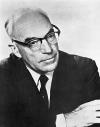
-
Sir John Eccles was a renowned Australian neuroscientist. His research on the role of synapses in the nervous system has been instrumental to our understanding of the transfer of signals across nerve cells and won him the 1963 Nobel Prize.
-
123.Sir John Gaddum
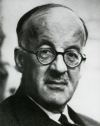
-
Sir John Gaddum was a prosperous academic who made several important observations in pharmacology. Much of his work is notable, not least discovering a substance found in our brain and intestines called Substance P, which is vital for life and associated with inflammation and pain.
-
124.John Goodyer
-
John Goodyer was a 17th-century botanist who lived in Hampshire, England. His papers made a significant contribution to Britain’s botanical heritage, though his work remained unknown until his papers were studied three centuries after his death.
-
125.Professor Sir John Gurdon

-
Sir John Gurdon is widely regarded as the father of cloning. From starting out as an 'unsatisfactory' science pupil he rose to become a distinguished developmental biologist and Nobel Laureate. Gurdon's discovery of the transplantability of the cell nucleus has led to huge advances in the field of cloning, most famously Dolly the Sheep.
-
126.Professor John Humphries
-
Professor John Humphries has used his experience and education to go above and beyond what is expected of him. His journey began at Southampton University where he read Oceanography, a subject that he has maintained a passion and drive for throughout the years. As a chartered biologist, he still regularly practices the discipline with his specialities being the ecology of estuaries and the coastal benthos.
-
127.John Hunter
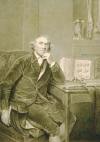
-
With little formal education John Hunter rose to become one of the most eminent and influential surgeons of his time and an advocate of careful observation and the use of scientific methods in medicine.
-
128.Baron Professor John Krebs

-
Baron Professor John Krebs is renowned for his work on how birds remember where they have hidden their seeds. He is well known for helping to shape public policy and has spoken about a wide range of topics from badger culling to organic foods.
-
129.John Lindley
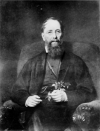
-
John Lindley was an English botanist with a passion for orchids and classification (taxonomy) of plants.
-
130.John Maynard Smith

-
John Maynard Smith is one of the most influential biologists of the 20th century. His most famous work is in the field of evolutionary biology, where he was particularly interested in applying game theory to evolution.
-
131.John Ray
-
John Ray was a naturalist who made a significant contribution to taxonomy. He laid the foundations for modern botany and zoology, and was first to use the terms petal and pollen. The taxonomical system he developed along with naturalist Francis Willughby forms the basis for the current classification of plants and animals.
-
132.Sir John Scott Burdon-Sanderson
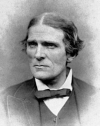
-
Sir John Scott Burdon-Sanderson was a British physiologist and a pioneer in electrophysiology. As is with the nature of science, it can sometimes be embroiled in controversy. Burdon-Sanderson seemed to experience more than his fair share due to his views on animal testing.
-
133.Professor John Stephen Jones

-
Steve Jones is a respected expert on evolution and an emeritus professor of genetics at University College London.
-
134.John Stevens Henslow
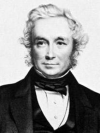
-
Martin Luther King was mentored by Dr Benjamin Mays, Tom Hanks by drama teacher Rawley Fransworth, and President Clinton by high school band director Virgil M. Spurlin. Every great person had someone from which they took advice, teachings, and inspiration. For Charles Darwin, this person was John Stevens Henslow.
-
135.Sir John Templeton
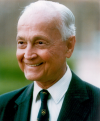
-
Sir John Templeton was a skilled investor and philanthropist who held a strong vision for a future that was progressive in our knowledge of ‘new spiritual information’, i.e. understanding not only religion but also human nature and the physical world.
-
136.John Worlidge
-
John Worlidge was a noted horticulturalist and agricultural writer in the 17th century. He wrote many influential documents about farming and his major work “Systema Agriculturae” was the first of its kind to systematically document crop cultivation practices. He lived from 1633-1993.
-
137.Sir Joseph Banks
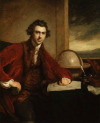
-
Sir Joseph Banks was the first director of Kew Gardens and a botanist who gave his name to more than eighty species of plant. He also left a legacy of applying scientific knowledge in order to improve the world.
-
138.Sir Joseph Hooker
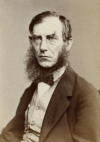
-
The 19th century history of Kew Gardens displays the radical shift in the way in which science was managed and presented during that time, and key to the shift was Sir Joseph Hooker.
-
139.Sir Joseph Lister
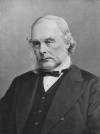
-
Joseph Lister made a ground breaking contribution to medicine when he proposed the basic principles of surgical hygiene. He introduced the aseptic technique to minimise postoperative infections and established a general code of cleanliness in hospitals.
-
140.Julian Huxley
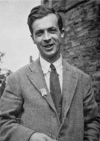
-
Julian Huxley was a twentieth century English biologist whose work greatly influenced scientific developments in evolution, embryology and studies of behaviour. He also co-founded the World Wildlife Fund, now known as WWF, a leading organisation in wildlife conservation.



